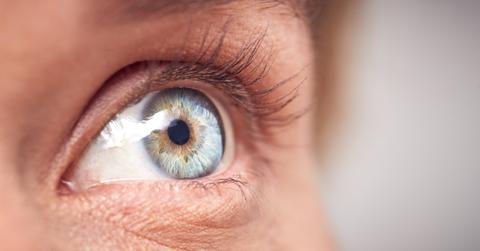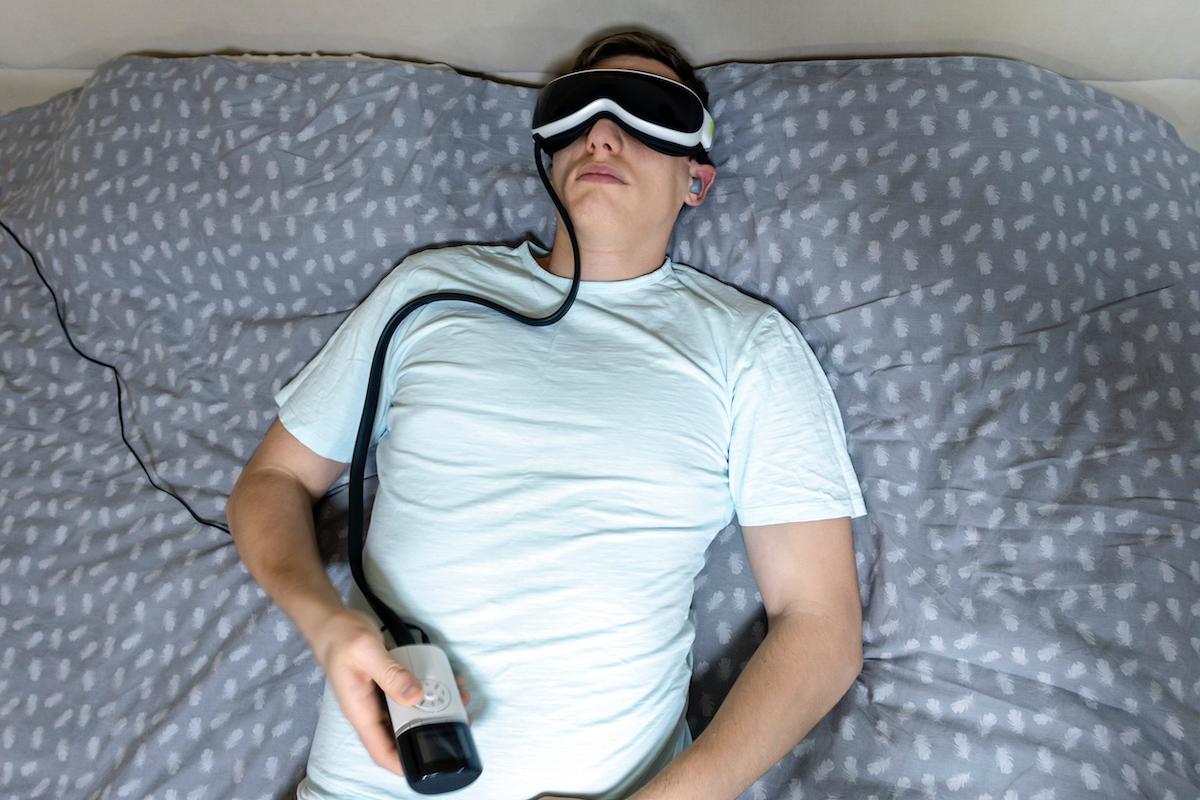Actually, There Could Be Many Reasons Your Eyelid Won't Stop Twitching
Updated May 11 2022, 4:01 p.m. ET

Do you ever notice one of your eyelids randomly won't stop twitching? It might not be noticeable to anyone except you, but the endless muscle spasms can get seriously annoying — and then a bit concerning after a while. Let's take a closer look at what could be causing that pesky eye twitch, along with what steps you can take to make it finally go away.
Why does my eyelid twitch?
The good news is eye twitches are common — and typically, there isn't anything to get too worked up about. Most of the time, eye spasms will resolve on their own without a need to seek medical treatment, Julian D. Perry, an oculofacial plastic surgeon, says per Cleveland Clinic.

“Many patients worry this may represent a neurologic problem. They worry that something serious is going on, but that’s rarely the case,” Dr. Perry explains. “Several things can cause one or both eyes to twitch and they can last for days to weeks, which can be very frustrating. "But these types of twitches are rarely a sign of a serious problem.”
Stress and fatigue are usually the culprits when it comes to eye twitching.
More often than not, the reason why your eye won't stop twitching can be traced back to two sources: stress and fatigue. Other potential culprits may include: eye irritation, eye strain, eyes that need glasses, medication, use of caffeine, alcohol, or tobacco.
How do I get my eye to stop twitching?
Whew, right? Except recurring eye twitching is annoying AF and you'd rather not see your upper lids fluttering all day while trying to be productive.
If eye twitching is an ongoing hindrance, making sure to get enough sleep, reducing stress if possible, and reeling in your caffeine intake may help, according to medical professionals.
Eye twitching can be a sign of something more serious.
It's important to note that not all instances of eye-twitching are harmless. Some situations may warrant a visit with your doctor, William Kormos, M.D., editor in chief of Harvard Men's Health Watch, advises.
"Involuntary closing of the eye, known as blepharospasm, may progress to a more persistent and serious disorder. Twitching that involves both the eye and the lower face together may indicate a neurologic condition such as multiple sclerosis," Dr. Kormos explains. "In truly harmless eyelid twitching, the symptom is limited to the eyelid and does not get worse. If you are concerned, it is best to ask your doctor to look at the eye and review the possible causes."

When should I be concerned about my eye twitching?
There are definitely some red flags to watch out for when it comes to eye twitching, according to Cleveland Clinic. You should see your doctor if it's seriously bothersome, or if you notice any of the following signs:
- If you experience weakness, drooping, or double vision.
- If your eyes begin to look red.
- If it feels like something is in your eye or you experience light sensitivity.
- If your vision is changing.
Of course, when in doubt, it's always best to err on the side of caution and make an appointment with your primary care physician to check things out. Good luck!